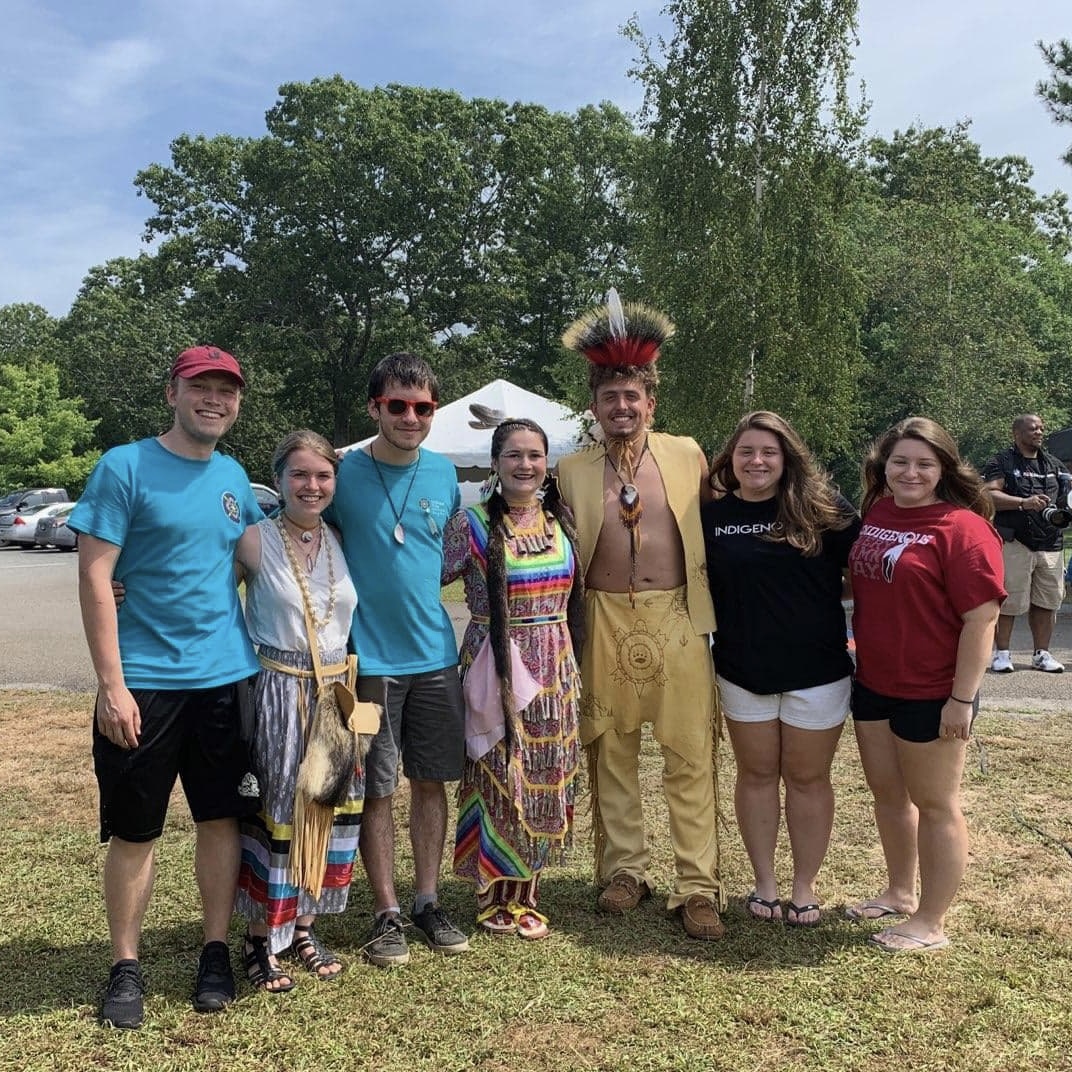In celebration of Indigenous Peoples' Day, we honor Indigenous Americans by delving into their rich histories and cultures. Through these interviews, we aim to foster understanding and uplift those impacted by disability.
Join us in welcoming Madeleine Hutchins, a Mohegan storyteller and scholar from Connecticut. A recent graduate from Yale Divinity School focusing on Indigenous lifeways, literature and philosophy, Madeleine enriches her community through storytelling and spiritual care giving.
Tap the link below to access a list of local and national resources tailored for Native Americans, thoughtfully curated by the New England ADA Center.
Can you start by introducing yourself? Share your name, tribal affiliation, interests or hobbies, and tell us how you got connected with the New England ADA Center.
Madeleine Hutchins: I'm a Mohegan storyteller and scholar. Some lovely friends connected me to the New England ADA Center through the Institute for Human Centered Design. I just graduated from Yale Divinity School where I studied storytelling and ritual, and how storytelling can be healing or harmful. We call this concept story medicine. I mostly focus on plays, and I've had the pleasure of helping develop some new Native theatre. I love to read and write. I love plants, cooking and eating [chuckles].

Personal experiences with disability vary greatly, and language plays a significant role. Most Native languages do not have words equivalent to "disability" because of a very different sense that it "others" people, but there is also use of disparaging slang related to people with disabilities (Keltner et al., 2005; Lovern, 2008; Nichols & Keltner, 2005). Can you share your journey with disability and how it has influenced your identity and connection to your tribe?
Madeleine Hutchins: My tribe is doing a language revitalization movement. Our fluent first-language Mohegan speaker died 1908. Hopefully, we will have a fluent first-language speaker in the next 20 years, but that's a huge undertaking. How Mohegans view disability and our place in the universe is encoded in our language. We’re missing an understanding of ourselves without access to that language. My whole life I've experienced some level of chronic pain. I was diagnosed with Hypermobility Spectrum Disorder, then I acquired Lyme disease and tick-borne illnesses. During the pandemic, for the first time, I could give myself accommodations I had never thought to ask for. When my pain was better managed, I was able to learn better.

Given that colonial structures often go unquestioned, what stereotypes or misconceptions have you faced regarding both your Indigenous identity and disability? How do you tackle these challenges, and is there a particular moment that stands out in your journey?
Madeleine Hutchins: I don't look like what people expect either a disabled person or an Indigenous person to look like. The idea of what an Indigenous person looks like is shaped by old Hollywood movies. Ideas of disabled people are often limited to someone with a cane, walker, or a wheelchair. I haven't been challenged on my identity as a disabled person, because I don't bring it up much outside discussing accommodations. As an Indigenous person, I have dealt with identity challenges since I was a kid. It was always uncomfortable defending my identity. When I took a break from grad school and worked for my tribe’s museum, I became solid in my knowledge of our culture and understood the pressure colonization put on our people. That experience taught me how to respond to misconceptions and stereotypes. Now, I can respond with tact, as long as the person wants to listen.

How does your disability fit into a culture where interdependence is highly valued? What is your perspective on independence vs. dependence?
Madeleine Hutchins: Interdependence is foundational in Mohegan spirituality and lifeways. It’s a common theme in most Indigenous cultures. In contrast, U.S. culture values independence and reviles dependency. I think the only neutral use of “dependent” is on taxes [chuckles]. The reality is we cannot exist as fully independent beings. For example, on a basic level, if there are no trees I can't breathe. I do not function as a solo biological being. I, certainly, cannot function as a fully independent social being. Many of our joys in life derive from other people. Hyper independence as a cultural value is extremely new. Throughout history, interdependence is how people survived.

We've talked about how colonization can lead to disability, but decolonization can counteract this process. Could you share some cultural practices that reflect the resilience and strength of Indigenous people?
Madeleine Hutchins: I feel like disability is normalized by most in my tribe. For example, you see people using mobility devices at powwow! And some dance! It’s remarkable because it’s not remarkable. This person is here, because they are part of our community. That said, we’re not perfect. Many Natives are in their own process of decolonizing, and that includes new views on disability. There’s always room for improvement.

What advice would you offer to other Indigenous individuals who might be going through similar experiences?
Madeleine Hutchins: I just want folks to not feel like they have to justify themselves when others question their identity. They should absolutely find the tools that help them feel comfortable existing as an Indigenous person and a disabled person. Look at your community’s values and see how that can help. Culture will set a solid ground to root yourself into it.
